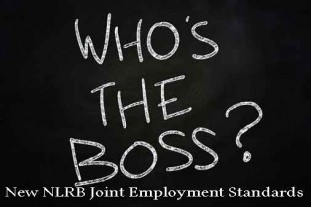 Many people think of the Americans with Disabilities Act (ADA) as protecting people with permanent disabilities. But the legislation also protects people with conditions, such as cancer, that may be temporary. The Equal Employment Opportunity Commission (EEOC) has clarified that cancer is covered by the Americans With Disabilities Act, and has released a document providing guidance to employers regarding the rights of employees with cancer.
Many people think of the Americans with Disabilities Act (ADA) as protecting people with permanent disabilities. But the legislation also protects people with conditions, such as cancer, that may be temporary. The Equal Employment Opportunity Commission (EEOC) has clarified that cancer is covered by the Americans With Disabilities Act, and has released a document providing guidance to employers regarding the rights of employees with cancer.
The document clarifies that individuals with cancer “should easily be found” to be disabled, according to the ADA’s requirement that an individual be substantially limited in a major life activity or normal cell growth. It also clarifies that individuals who once had cancer and are now in remission should also easily be found to have a disability under the Americans With Disabilities Act, as they would be substantially limited in a major life activity or normal cell growth if they had a recurrence of cancer.
What an Employer May and May Not Say to an Employee with Cancer
The document details the types of questions an employer may ask an employee or job applicant regarding cancer:
- An employer may not ask a job applicant if he or she has cancer, or if he or she has ever had cancer, or if he or she is undergoing any type of cancer treatment.
- If a job applicant volunteers that he or she has cancer, or that he or she once had cancer, an employer generally may not ask follow-up questions about the cancer – unless the employer reasonably believes that the applicant will need accommodations due to the cancer.
- If a job applicant has received a conditional job offer, and then the employer learns that the applicant has or had cancer, then the employer may ask the applicant additional questions.
- An employer may ask an employee with cancer questions about his or her condition, if the employer reasonably believes that the employee will be unable to perform his or her job functions safely.
Accommodations
The EEOC has also addressed the issue of accommodations for employees with cancer. An employee with cancer can request an accommodation merely by explaining that they require it because of their cancer. In addition, another person can request the accommodation on their behalf.
However, an employer does not necessarily need to grant all requests for accommodation. An employer can turn down a request for accommodation if it is unreasonable. An employer may also turn down a request for a reasonable accommodation if it would cause undue hardship for the employer. (In addition, an employer who receives a request for accommodation has the right to ask for medical documentation.) [Read more…]


